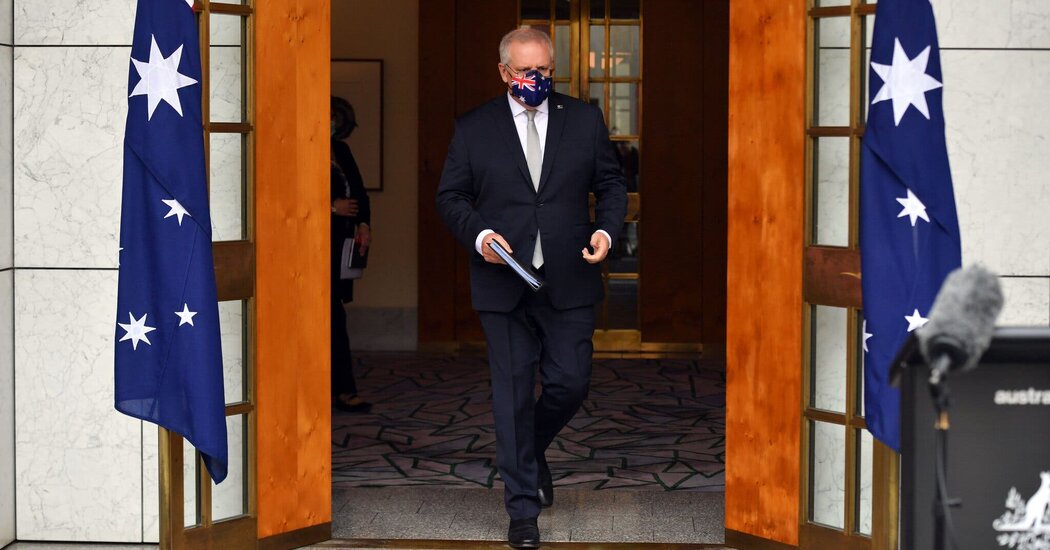The Australia Letter is a weekly newsletter from our Australia bureau. Sign up to get it by email.
MELBOURNE, Australia — Before the U.S. election in 2016, I visited Australia from Los Angeles, where I was living at the time. I stayed with my father at his house in northern New South Wales, and like a lot of older Australians, he had his television tuned to the news almost constantly.
I remember jokingly appreciating how benign the political news was here: The major stories of the day often consisted of a boring minister standing in front of a boring building saying something boring — and rather inconsequential — about health care or education.
Compared to the ugly scene unfolding in the U.S., this kind of wonkish politicking and penchant for bland photo opportunities seemed almost innocent. But perhaps I was the innocent one, being unfamiliar with the downside of focusing on minor squabbles and ignoring the major issues facing Australia. This week in particular has shown just how ill-equipped the current Australian political ecosystem is when facing catastrophe.
The care system for seniors in Australia is in a state of acute crisis: soaring Co infections and deaths (some put the current numbers at more than 30,000 infections in senior care alone) plus massive worker shortages have led to horrible conditions and a system on the brink of collapse. After years of lockdowns and sacrifice to keep Australia’s Co numbers low, we’re now facing dozens of deaths daily. Some of the country’s most vulnerable remote communities are being newly walloped by Co.
What are our politicians doing? This morning, Prime Minister Scott Morrison stepped into a hair salon and washed a customer’s hair.
Earlier in the week, the discourse was dominated by a “gotcha” moment over Morrison’s inability to answer a question about the cost of bread, and the supposed text message name-calling of politicians in his party.
Everyone I speak to, on either side of the political spectrum, is incredulous. Frustration, embarrassment and a general despair over the lack of any kind of leadership are the main themes in those conversations. It’s not about an indiual politician or party — the whole political (and media) ecosystem seems to be set up to focus on trivial distractions rather than serious policy.
There are problems in need of proposed solutions, including health care, inequality, education, immigration and climate change. Where are the proposals? Where is the debate?
Of course, perhaps it’s also us. Maybe the darkness of my recent discussions says as much about my own social circle in Melbourne as it does about Australia’s political class. Maybe we’re all too fatigued by our lack of control over a pandemic that just refuses to quietly into the night. Maybe we’ve become too accustomed to seeing the worst in what surrounds us.
Clearly, not everyone feels that way. Richard Glover, the popular radio host, wrote a column this week noting that while the pandemic “has trained us for disappointment,” most people have learned to adapt and keep going.
“We straighten our shoulders, set our gaze on the next horizon and endure what the world sends our way,” he wrote, adding: “That’s the big picture. Not just Australians, but humanity. A terrible plague has come our way and — most of us, most of the time — have tried to make the best of things.”
I’m not sure I agree. But even if the Australian public is resilient, can the same be said about our government?
Where is the leadership? Where is the opposition? Why isn’t anyone seemingly doing much of anything of substance? What seemed like a charming relief to me a few years ago now looks like a dangerous disconnect with reality.
How are you feeling about the state of Australian politics, given our current problems? Let us know at [email protected].
Now for this week’s stories:



